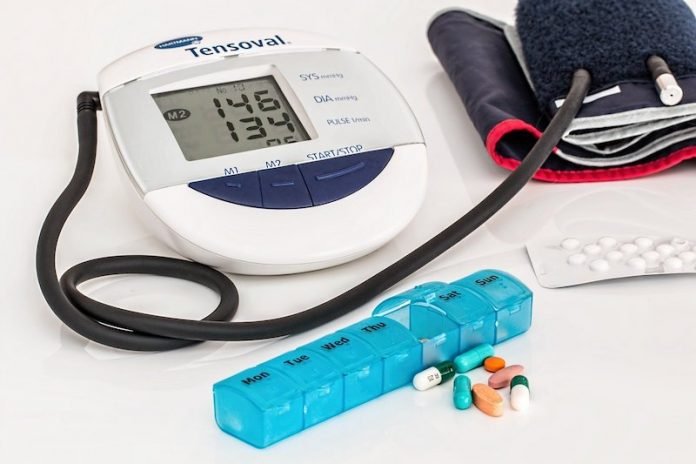
Certain medications that lower blood pressure also might lower the risk of depression, a recent study shows.
Researchers analyzed data on more than 3.7 million adults in Denmark who took any of the 41 most commonly prescribed high blood pressure medications, including 37 medicines approved for use in the United States, from 2005 to 2015.
None of the medications increased the risk of depression – and, in fact, nine appeared to lower it.
The findings were published in the American Heart Association journal Hypertension.
Depression is common among people with heart disease, stroke and high blood pressure, also called hypertension.
Researchers said this is the first study to systematically investigate whether individual blood pressure medications might influence the risk of developing depression.
“Our study’s findings could help guide prescriptions for patients with high blood pressure who are at risk of developing depression, those with prior depression or anxiety, and patients with a family history of depression,” lead study author, Dr. Lars Vedel Kessing, said in a news release.
He is professor of psychiatry at the Psychiatric Center Copenhagen and the University of Copenhagen, Faculty of Health and Medical Sciences in Denmark.
“However, if a patient is doing well with their current blood pressure prescription, there is no reason to switch.
If depression develops, a medication switch may be considered to one of the nine anti-hypertensive medications that lowered depression risk.”
The four main categories of blood pressure-lowering medications were reviewed: angiotensin agents, which include ACE inhibitors and ARBs; calcium antagonists; beta blockers; and diuretics.
Diuretics showed no impact on depression risk, but a few medicines in each of the other categories significantly lowered it.
Those nine – all approved in the U.S. – are enalapril and ramipril (angiotensin agents); amlodipine, verapamil and verapamil combinations (calcium antagonists); and propranolol, atenolol, bisoprolol and carvedilol (beta blockers).
“It is possible that the mechanism involved in decreasing the risk of depression is the anti-inflammatory effect among these nine medications,” Kessing said.
Low-grade inflammation is common in high blood pressure and heart disease, as well as in depression. Future research, he said, should compare the inflammatory properties in those medicines.
The research was not a clinical trial that randomly selected which medications patients received, and it relied on a clinical diagnosis of depression.
The impact on depression risk was analyzed for each high blood pressure medication individually and not tested head-to-head or as combinations of one or more antihypertensive medications.
If you care about depression and anxiety, please read studies about depression could be a cause of 20 major diseases and findings of these dietary supplements may help treat depression, schizophrenia.
For more information about depression and mental health, please see recent studies about common depression drug may reduce anxiety more than depressive symptoms and results showing that your gut bacteria may be linked to depression, high blood pressure.



